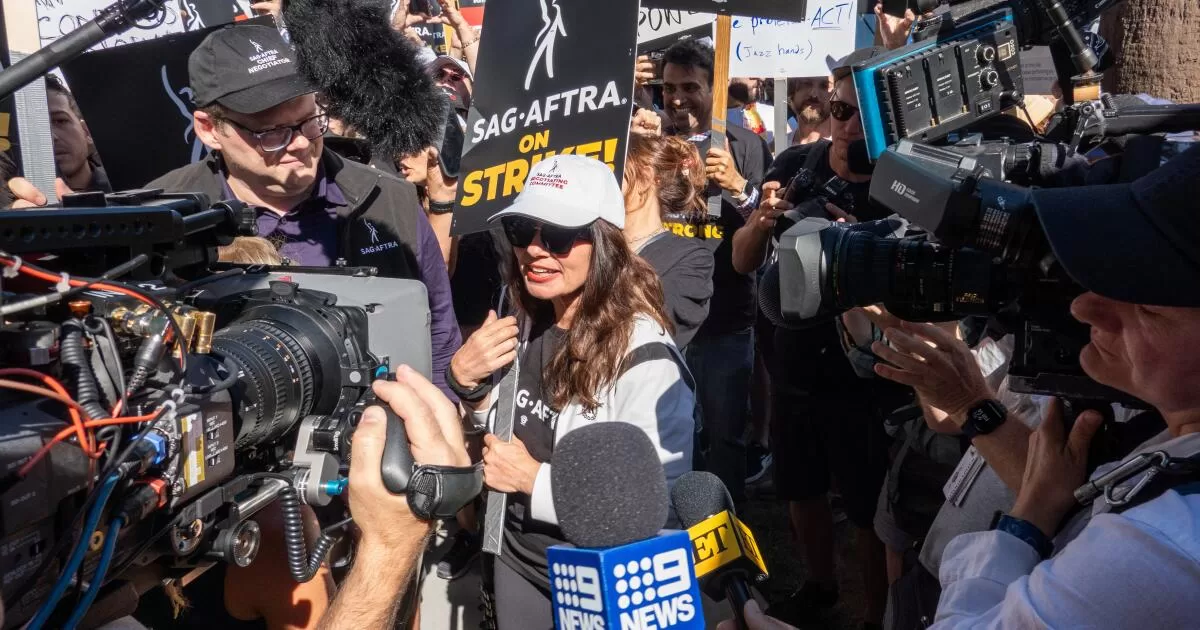Video game performers are officially on strike.
The Screen Actors Guild-American Federation of Television and Radio Artists called a walkout this week on behalf of roughly 2,600 actors doing voice-over, motion-capture and other work in the gaming industry.
Union leaders took the step after they could not reach an agreement on artificial intelligence terms while bargaining for a new contract with the top video game companies, including Activision, Electronic Arts, Insomniac and Blindlight.
“We’re not going to consent to a contract that allows companies to abuse AI to the detriment of our members,” SAG-AFTRA President Fran Drescher said in a statement Thursday. “Enough is enough.”
Audrey Cooling, a spokesperson for the video game producers, said in a statement: “We are disappointed the union has chosen to walk away when we are so close to a deal, and we remain prepared to resume negotiations.”
How did we get here?
The union has been in contract negotiations with the video game companies since 2022, and the Interactive Media Agreement expired that November.
Video game performers are seeking a new agreement that will require video game producers to obtain their consent and compensate them when using AI to replicate their voices or likenesses. They are also demanding wage increases to keep up with inflation, more rest time and set medics for hazardous jobs.
Tensions escalated in September 2023, when union members voted 98% in favor of authorizing a strike.
Duncan Crabtree-Ireland, chief negotiator and national executive director of SAG-AFTRA, said at the time that the companies were not “willing to meaningfully engage on the critical issues,” including compensation, AI and safety.
The companies vowed to “negotiate in good faith to reach an agreement that reflects the important contributions” of game performers.
On July 20, the union’s national board of directors granted Crabtree-Ireland the authority to call a strike, citing a lingering dispute over AI.
How will this affect the video game companies?
Much like last year’s Hollywood writers’ and actors’ strikes against the film and TV studios and streaming services, this one could potentially lead to longer-term production lulls, particularly for games scheduled for release in 2025 or 2026.
Production is expensive and on a tight schedule, a reality that doesn’t give video game companies a lot of margin to “sit this out,” said Joost van Dreunen, an adjunct assistant professor at NYU Stern School of Business and author of “One Up: Creativity, Competition, and the Global Business of Video Games.”
For instance, companies can’t afford to miss out on the all-important holiday spending season. November and December traditionally account for about half of annual game sales, he said.
“If you don’t get things across the line, if you can’t finish your work and release it on time, you’re going to miss a very, very important window, and that’s going to hurt you financially,” Van Dreunen said.
But not all games are covered by the strike. According to contract provisions, games that were in production when the union provided the company with notice of its termination are not subject to the strike order, according to a SAG-AFTRA spokesperson.
What’s next?
As of Friday, SAG-AFTRA video game actors are barred from lending their services to any struck games.
Those services may include acting, singing, dancing, stunts, motion capture, auditions, camera tests, rehearsals, authorizing the use of one’s voice or likeness, background and stand-in work.
Covered performers are also prohibited from promoting struck games via social media, interviews, conventions, festivals, award shows, podcast appearances or any other platform. (The ongoing San Diego Comic-Con has been exempt from this rule due to its proximity to the strike announcement.)
The union has indicated that it will also hold pickets as part of the walkout.
Only time will tell how long it will take the union and the companies to reach a tentative agreement and end the work stoppage.
The last strike by video game actors stretched on for nearly a year, from October 2016 to September 2017. Back then, AI had yet to become a major concern and performers were pushing for residual-like payments based on video game sales — similar to how film and TV actors are compensated for their work.
Van Dreunen said companies would likely try to resolve the contract negotiations by September, but at the latest, by the end of the year, before answering to investors during their next earnings calls.
